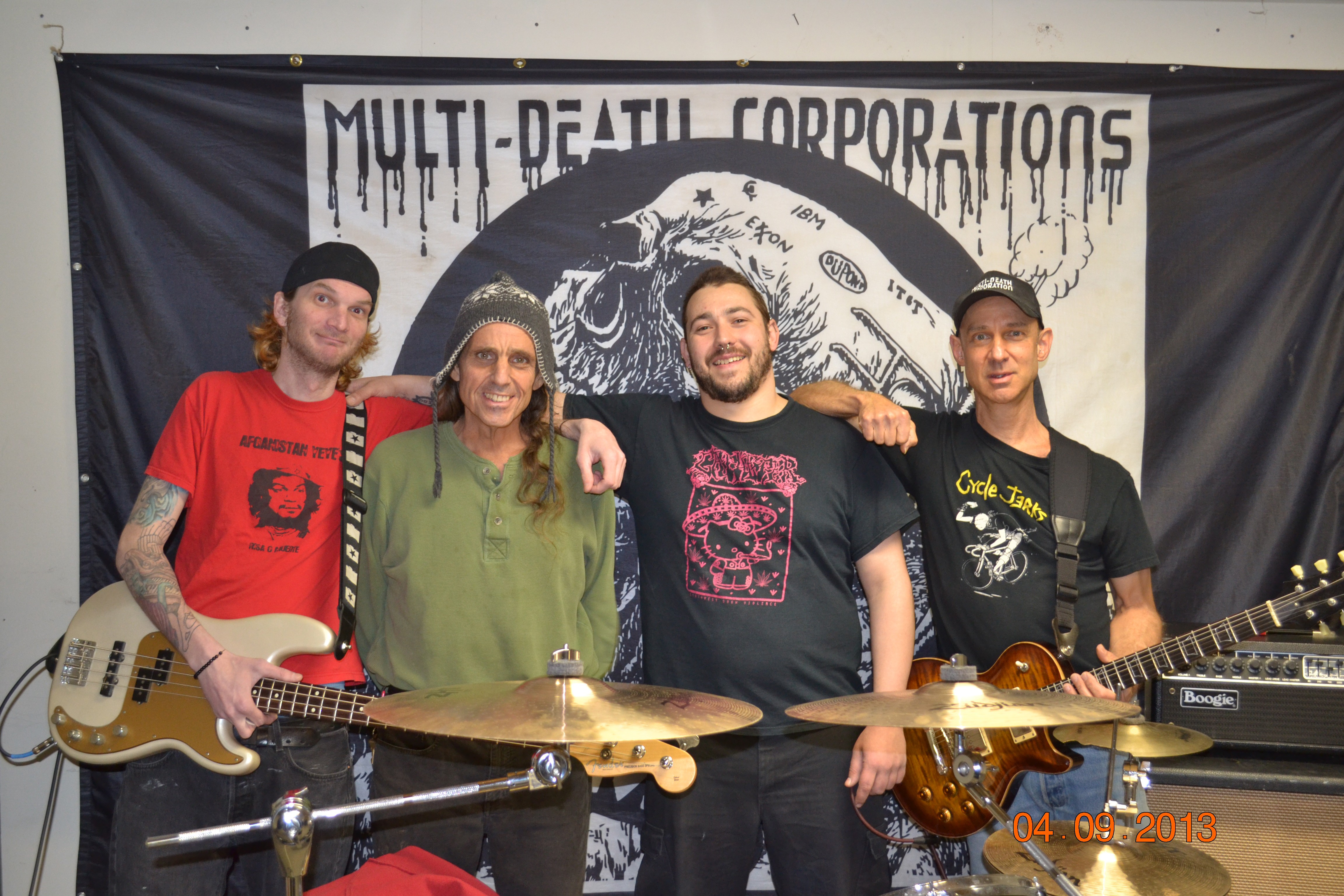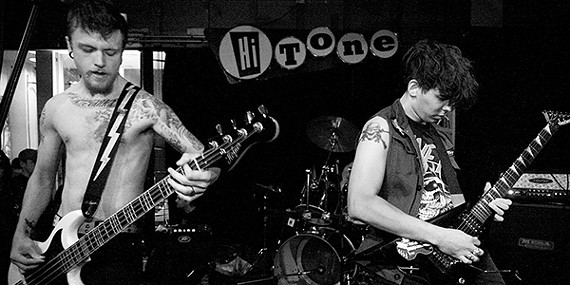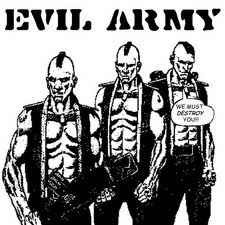
Originally emerging out of the the Austin, TX nascent punk/hardcore scene in 1979 as The Stains, the band that would become MDC completed that city’s trio of major players (The Dicks and The Big Boys being the other two) in the early years of our nation’s hardcore movement. Their first and only release as The Stains was 1979’s “John Wayne Was A Nazi” / “Born To Die” 7”, an introduction to the sort of confrontational M.O. that would coalesce once the band relocated to San Francisco and began operating under the infamous MDC moniker.
MDC’s full-length debut, titled Millions of Dead Cops after the first meaning behind their initialized band name, appeared in 1982 in two versions: A self-released original and a remixed (by Geza X no less) reissue by both the band’s R Radical imprint and the Dead Kennedys’ Alternative Tentacles label.
MDC Tonight at Murphy’s
Widely considered a classic document of early, hyper-politicized American hardcore, the set of now-classic HC blueprint songs provide the best summation of Dave Dictor and MDC’s “political humanist hardcore.” Besides a couple of songs that, unsurprisingly, reprise the album title’s (and for the moment at least, their moniker’s) whack-upside-the-head unsubtlety regarding where the band stood on law enforcement, other targets in their cross-hairs are highlighted by “Corporate Deathburger” (McDonalds), “America is So Straight” (homophobia- Dictor, like The Dicks’ Gary Floyd and Big Boys’ Randy “Biscuit” Turner, was one of the movement’s only openly-gay front-men), “Violent Rednecks” (self-explanatory), “I Hate Work” (ditto), “Church and State” (uh…ditto-ditto) and many other pointed interpretations of mainstream American culture at that moment in history.
After some negative blowback from within the punk/hardcore community about the original meaning of the band’s name, MDC was then “Multi-Death Corporation”, “Male Dominated Culture” and the mouthful “Misguided Devout Christians” (plus others) at different points on their long timeline. A slew of stylistically-disparate (though no-less politically/socially/culturally-charged) albums were released over the next decade-and-a-half, such as 1986’s Smoke Signals, 1987’s This Blood’s For You, ‘89’s Metal Devil Cokes, Hey Cop! If I Had A Face Like Yours… in 1991 and Shades of Brown in 1993 (with a tour of Russia that made MDC the first ever American punk band to do so).
After a hiatus during the second half of the ’90s, Dictor reactivated a lineup in 2000 and MDC released Magnus Dominus Corpus album in 2004. The band, in various incarnations led by Dictor, has released an impressive number of split LPs and EPs with other bands, plus several live albums over the last decade. This year marks MDC’s 35th anniversary and something tells me Dave Dictor has some commentary about the near chaotic state of current affairs facing not only our country at this juncture in history but the entire world.
The undoubtedly packed evening at Murphy’s (doors open at 7:30 p.m. and the Facebook event page makes note of a very achievable “90 person capacity”) will kick off at 8:30 p.m. with Negro Terror (a hardcore spinoff of local roots/dub reggae aficionados Chinese Connection Dub Embassy), more Memphis no-B.S. hardcore from Hauteur, our venerable institution of genuine thrash metal Evil Army, and Wartorn. Door price is an un-arguably fair ten dollars.
MDC Tonight at Murphy’s (2)
 Don Perry
Don Perry 
 Justin Fox Burks
Justin Fox Burks